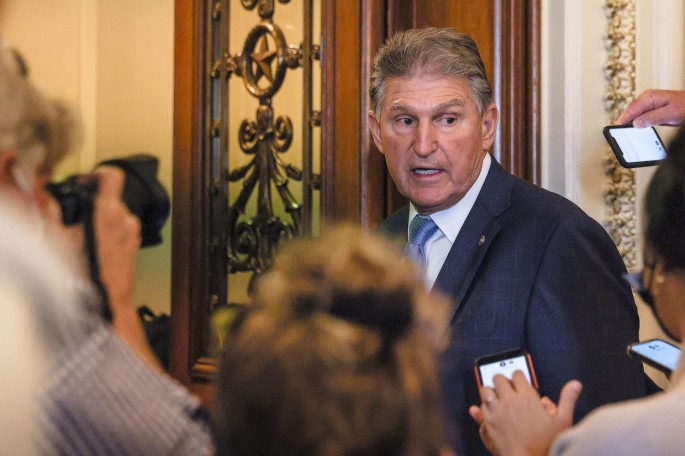The U.S. Senate on Thursday took a step toward passing a $480 billion increase in Treasury Department borrowing authority, a move that would avert a catastrophic debt default later this month but set up another partisan showdown in early December.
Democratic Senate Majority Leader Chuck Schumer aimed to hold an important procedural vote on Saturday that could clear the way for passing the debt limit increase.
That vote could come sooner if all 100 members of the Senate, which is evenly split between Democrats and Republicans, agreed to speed up the process.
If the legislation clears the first hurdle to limit debate on the bill, as expected, the Senate would then be poised to vote on raising the debt ceiling to $28.9 trillion from the current $28.4 trillion.
Senate passage could come as late as Sunday or Monday if any senator insists that all available debate time be used. But Schumer held out hope for faster action.
"We have reached agreement to extend the debt ceiling through early December and it's our hope we can get this done as soon as today," Schumer said early on Thursday.
News of the negotiations drove Wall Street's main indexes up in a broad-based rally. In a sign of bond market relief, the yield on one-month Treasury bills fell to its lowest point since Sept. 8 as investors deemed that risk of default had eased.[.N][US/]
Nevertheless, there were early signs of resistance from some Republicans who registered opposition to either the bill itself or the procedures for debating it.
A closed-door lunch to determine whether the legislation could be expedited through the Senate, possibly on Thursday or Friday, was inconclusive, according to several Republicans.
Gaining enough Republican cooperation to promptly move forward on the bill, No. 2 Senate Republican John Thune told reporters, "will be a painful birthing process."
If the Senate approves the bill, the Democratic-led House of Representatives would then vote on the measure before it went to President Joe Biden to sign into law.
RECONCILIATION
Washington's debt limit troubles are unlikely to be resolved even with passage of a stop-gap increase.
Senate Republican Leader Mitch McConnell is still expected to insist that the next increase in December be achieved through a complicated "budget reconciliation" process that is time-consuming but will allow for passage without any Republican support.
Doing so could bolster Republican candidates in the 2022 congressional elections as they try to burnish their credentials as fiscal conservatives - even though most of them previously supported an array of measures that jacked up U.S. budget deficits.
Democrats adamantly rejected such the reconciliation process for dealing with the debt ceiling as too unwieldy and establishing a bad precedent.
Referring to the deal providing a debt limit reprieve until December, McConnell said in a Senate speech: "Now there will be no question. They'll (Democrats) have plenty of time" to pass the next increase using reconciliation.
Democrats had been trying to pass legislation that would have raised the debt limit through the end of 2022, which Republicans blocked.
Without congressional action, the Treasury Department has forecast that it will run out of ways to pay all of its bills and meet its debt obligations by Oct. 18.
While the deal relieves debt ceiling pressures for now, it adds to the high-stakes, partisan battles Congress will wage through the end of the year.
Democrats want to pass two massive spending bills that make up much of Biden's domestic agenda in the coming weeks, including a multitrillion-dollar social policy package and a $1 trillion bipartisan infrastructure bill. It also faces a deadline for funding the government beyond Dec. 3.
The partisan debt limit fight raised Republican fears that Democrats might change a rule https://www.reuters.com/world/us/us-senate-filibuster-looms-large-leaders-seek-debt-ceiling-deal-2021-10-06 known as the filibuster that requires a supermajority of 60 votes for most legislation to advance if the debt issue were not resolved.
The 50-50 split in the Senate has allowed Republicans to use the filibuster to block several Democratic initiatives.
Biden said late on Tuesday that Democrats would consider making an exception to the filibuster https://www.reuters.com/world/us/what-is-us-senate-filibuster-why-is-everyone-talking-about-it-2021-10-06 to hike the debt ceiling and defend the economy.



























